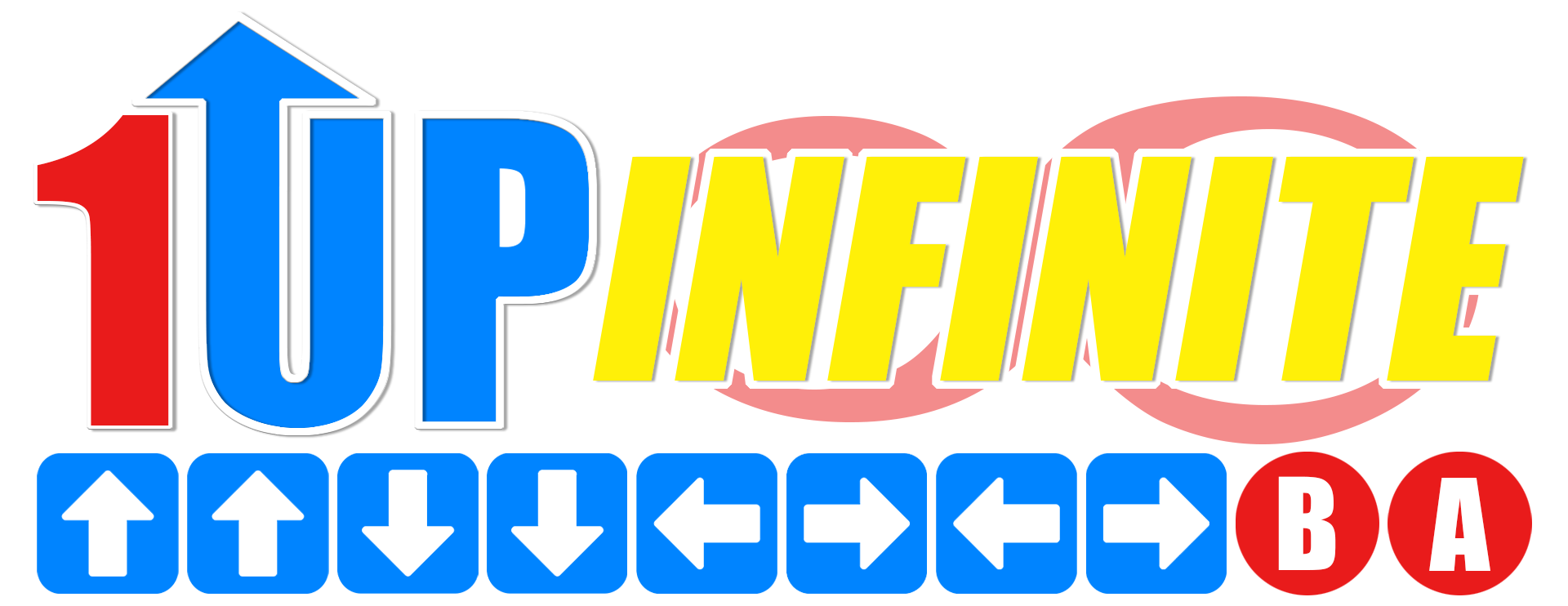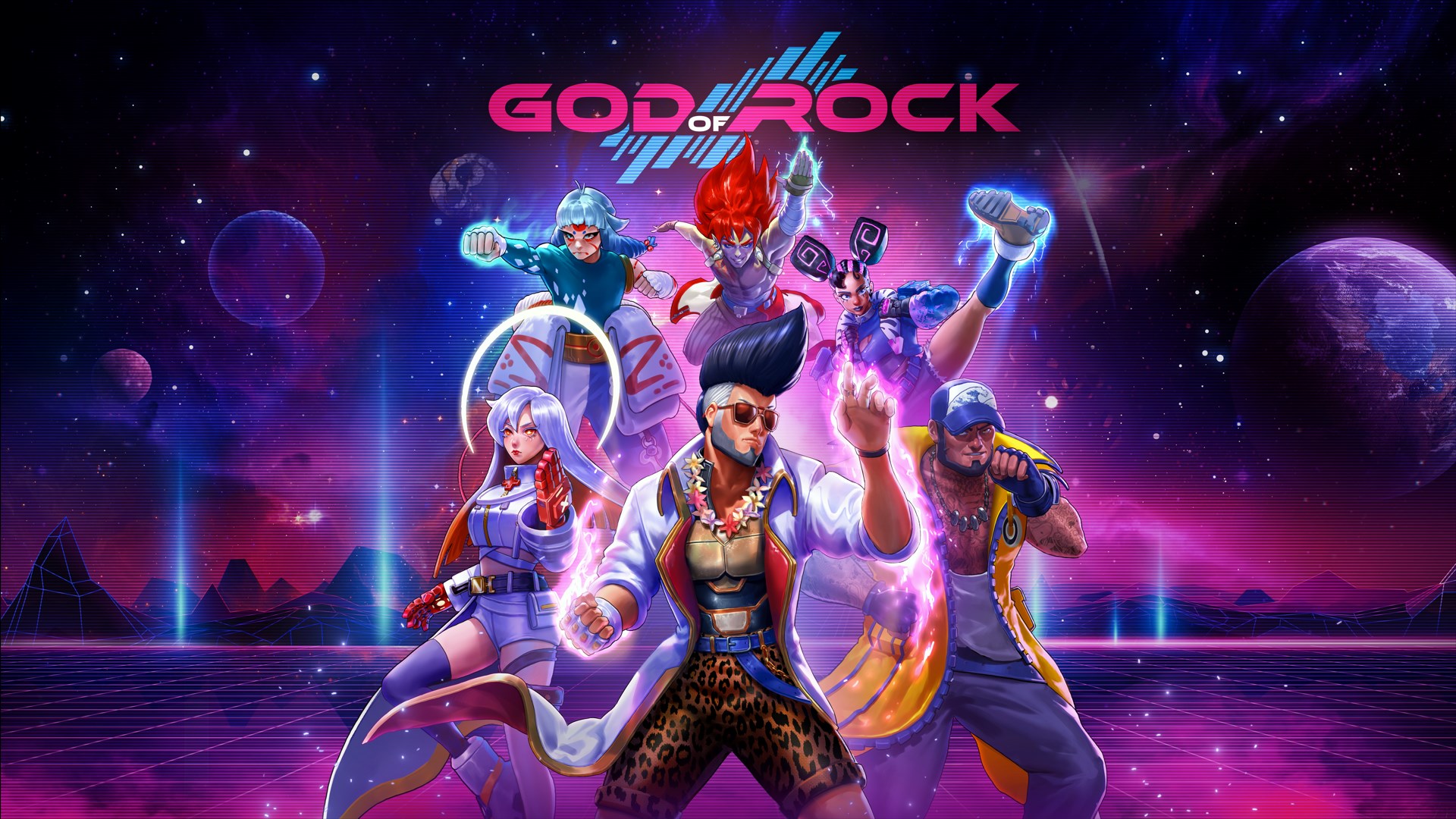Over the past few decades since the 1990s, rhythm and fighting games as well as their respective fans have seen plenty of overlap. It was 2009 when I realized I had a fondness for both genres, born from the necessity to keep my attention span in check while I waited for my turn. This has been rooted since the arcade era, when playing DJMAX Technika was a way to pass the time while waiting for your turn to, unsuccessfully, dethrone the top player who is on a 30-game win streak in Tekken 6. It always intrigued me that very few games have thought to combine the two, with God of Rock being one of the few examples I’ve had the chance to try out.
It wasn’t uncommon to see fighting games feature rhythm game elements, like Slap Happy Rhythm Busters for example. Slap Happy Rhythm Busters was a PlayStation 1 Japan-exclusive fighting game in which fighters had a super attack that allowed players to tap to the beat. Successfully hitting all the notes will finish with the best version of a fighter’s super combo. Another example of implementing rhythm games in fighting games is as recent as Tekken 7’s Lucky Chloe. Her Rage Art requires specific timing that deals maximum damage if the player hits every note perfectly.

Conversely, almost all rhythm games had a “versus” or a fighting element to them. Gitaroo Man was one of the early examples of taking the “call-and-response” form of music and turning it into a musical battle. Dance Dance Revolution always had a two-player mode where you compared scores at the end of each round.
The Bust A Groove series was a rhythm game where each character had a unique move list and they “fought” their opponent by attacking them during a dance routine. In Bust A Groove 2, you could outright steal someone’s solo by attacking them at the right time, which the victim can defend themselves by dodging and reversing the attack back at them. God of Rock uses elements from the Bust A Groove series while expanding upon it to make it more like a traditional fighting game.

Released during the Steam Next Fest, the God of Rock demo features seven fighters, each with their unique traits and archetypes. The King, for example, is a straightforward brawler who is definitely not an expy of Elvis. Another character, Rosetta, uses her spray cans to amplify her abilities—Wait a minute. A woman with spray cans who uses music in her gameplay and is a fairly new character in a fighting game. Why does this seem familiar?
Oh, there’s also Hilde whose attacks heal her via her special abilities, yet, she also bears a striking resemblance to another fighting game character who has also seen an uptick in popularity. Yeah, not only are there characters in reference to pop culture, but other characters such as Rosetta and Hilde bears resemblance to Kimberly and Jack-O from Street Fighter and Guilty Gear Strive. The references are subtle, but fans of fighters and rhythm games will be able to identify them as well as appreciate the aesthetic God of Rock goes for.

Each fighter has a health bar and as the player hits the notes according to the beat, they will deal more damage over time. Missing notes count as a detriment, as well as getting hit by your opponent’s notes, so it’s important to have a sense of rhythm in order to succeed. Similar to Hi-Fi Rush, players who find it difficult to find the beat can win via another method—fighting them by using each character’s special moves. A fighter has access to three special moves, an EX move, and an Ultra move.
The moves for each character are meant to fulfill each fighter’s characterization and personality, which means each fighter has a specific “win condition” in mind outside of “playing well.” Using Hilde as an example, she’s arguably the most straightforward character in the game from a pure rhythm game perspective. She rewards the player for playing the “rhythm game” aspect well, with her special moves granting life recovery and offsetting the opponent’s damage as they take more damage. Her Ultra allows her to convert her healing stacks to an all-in attack, converting her passive gameplay to an attack that will finish her opponents.

While Hilde requires the player to play well to reap her rewards, other characters like Tophat plays the game like a fighter. He can charge his input by holding a direction before letting it go, making him the “Guile” of God of Rock. He also deals more damage the longer the button is held, which means the opponent’s health melts quickly. The longer the fight persists, the more difficult the notes will become, until it becomes unplayable that a winner must be declared. Tophat still requires the base game to be played, but his attacks will allow him to deal secondary damage if the late game is proving too much.
Then there’s Kosaku, a fighter that’s skilled at both the rhythm and fighting game aspects by ruining it for your opponent. He has an ice and a fire stance, similar to Stance characters in fighting games which would make him the “Gen” of God of Rock. Even though his ice and fire stances remind me more of “Gill.” Kosaku, in ice stance, debuffs the opponent by slowing down the note speed as well as freezing the judgment line. The latter means your opponent cannot attack unless they mash out of being frozen.

In fire stance, any debuff the opponent has causes them to take double damage, has far greater offensive attacks, and has an Ultra that deals a lot of damage altogether. This is the kind of character that flips the rules of the game on its head, as not only can Kosaku deal tons of damage by playing very little of the game, but he can prevent his opponent from scoring by stopping them from doing the same thing. The song selection is robust, and the inclusion of a “create a track” mode is also cool, but I love the diversity of the game’s cast so far.
There’s a character for everyone, from those who rely on fundamentals like Hilde, others who are more offensive base like Rosetta and Tophat, and those who are perfect at bending the rules like Kosaku. While the game launches in a few months, the God of Rock demo is a great way to get a glimpse as to how this rhythm-fighting game hybrid will play on its release date. Learning each character’s special commands while also focusing on keeping your combo may seem like information overload, but each command is simple to memorize, so using any of them is enough to provide an advantage.

The God of Rock demo is currently available on Steam and players can wishlist it here.

